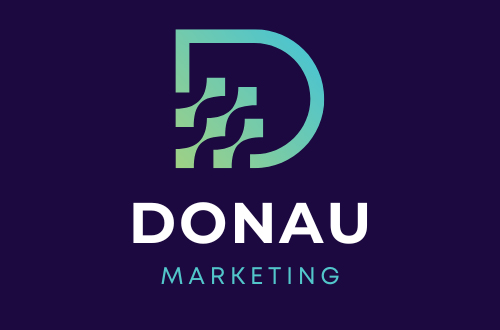Trends & Expert Opinions
Get the Latest from Donau Marketing
Stay ahead of the curve with our Trends and Expert Opinions section, where we explore the latest developments and insights shaping the marketing landscape.
Newest Marketing Tools
In the dynamic field of marketing, embracing the latest tools can be a game-changer. Staying ahead with cutting-edge technologies helps streamline operations, enhance targeting, and achieve superior results. For example, AI-powered tools are revolutionizing personalized marketing by analyzing customer data to tailor messages and recommendations with unprecedented accuracy. This means your marketing efforts can be more relevant and engaging, driving higher conversion rates.
Consider automation platforms like HubSpot or Marketo, which simplify campaign management by automating email sequences, lead nurturing, and performance tracking. Similarly, AI-driven analytics tools like Google Analytics 4 or Hotjar provide deep insights into user behavior and website interactions, enabling you to make data-informed decisions and optimize your strategies.
Chatbots, such as those offered by Drift or Intercom, are another innovation enhancing customer experience. They provide instant support, gather customer feedback, and guide users through their journey, all while freeing up your team to focus on more complex tasks.
By integrating these advanced tools into your marketing strategy, you not only streamline your processes but also create more personalized and impactful customer interactions, ensuring your business remains at the forefront of industry trends.
AI for Marketing
Artificial Intelligence (AI) is transforming the marketing landscape, offering powerful tools that enhance efficiency, personalization, and decision-making. AI’s ability to analyze vast amounts of data and predict consumer behavior is reshaping how businesses engage with their audiences.
Personalization at Scale: AI algorithms analyze customer data to create highly personalized experiences. For instance, platforms like Salesforce Einstein and Adobe Sensei use AI to tailor content, product recommendations, and email campaigns to individual preferences, increasing engagement and conversion rates.
Predictive Analytics: AI tools can forecast future trends and consumer behavior by analyzing historical data. For example, predictive analytics can help you anticipate market shifts, optimize inventory, and target potential leads more effectively. Tools like IBM Watson and Google Cloud AI offer insights that guide strategic decisions and refine marketing tactics.
Automated Content Creation: AI-driven tools like Copy.ai and Jasper automate the generation of marketing copy, blog posts, and social media content. These tools use natural language processing to produce high-quality content quickly, allowing marketers to focus on strategy and creative tasks.
Enhanced Customer Interaction: Chatbots and virtual assistants, powered by AI, provide instant customer support and engage users around the clock. These AI systems, such as those developed by Drift or Intercom, handle common inquiries, schedule appointments, and guide users through their journey, improving customer satisfaction and operational efficiency.
AI’s integration into marketing not only streamlines processes but also enables a deeper understanding of customer needs, leading to more effective and personalized marketing strategies. As AI technology continues to evolve, staying informed and adaptable will be key to leveraging its full potential for your marketing efforts.
The Future of Consumer Behavior
The future of consumer behavior is being shaped by rapid technological advancements, shifting societal norms, and evolving expectations. As we look ahead, several key trends are poised to redefine how consumers interact with brands and make purchasing decisions.
Increased Focus on Personalization: Consumers are increasingly expecting tailored experiences that cater to their individual preferences. Advances in AI and data analytics are enabling brands to deliver hyper-personalized content and product recommendations. Personalized shopping experiences, from customized marketing messages to bespoke product offerings, will become the norm as brands strive to meet the unique needs and preferences of each consumer.
Sustainability and Ethical Consumption: Growing awareness about environmental and social issues is driving consumers towards more sustainable and ethically produced products. Brands that demonstrate a commitment to sustainability, fair trade practices, and corporate social responsibility will resonate more with eco-conscious consumers. Transparency in sourcing and production processes will be crucial for building trust and loyalty.
Omnichannel Experiences: The line between online and offline shopping is blurring, with consumers expecting seamless interactions across all channels. Integrated omnichannel strategies will be essential for providing a cohesive brand experience, whether a customer is shopping online, in-store, or via mobile apps. The future will see an increase in technologies like augmented reality (AR) that enhance the omnichannel shopping experience.
Voice and Visual Search: Voice-activated assistants and visual search technologies are becoming more prevalent, changing how consumers search for and discover products. Brands will need to optimize their content for voice search and invest in visual search capabilities to stay ahead of these emerging trends.
AI and Automation: AI will continue to play a pivotal role in shaping consumer behavior by automating interactions and predicting preferences. Automated customer service, personalized marketing, and intelligent recommendation systems will drive efficiency and improve customer experiences.
Privacy and Data Security: As data privacy concerns rise, consumers will demand more control over their personal information. Brands must prioritize data security and transparency, offering clear privacy policies and robust protections to build and maintain consumer trust.
Experience-Driven Purchases: Consumers are increasingly valuing experiences over products. Brands that offer memorable and immersive experiences—whether through virtual reality (VR) events, interactive content, or exclusive access—will capture the attention and loyalty of experience-driven consumers.
The future of consumer behavior will be characterized by a greater emphasis on personalization, ethical considerations, and technological integration. Staying ahead of these trends and adapting strategies accordingly will be key to thriving in the evolving marketplace.
